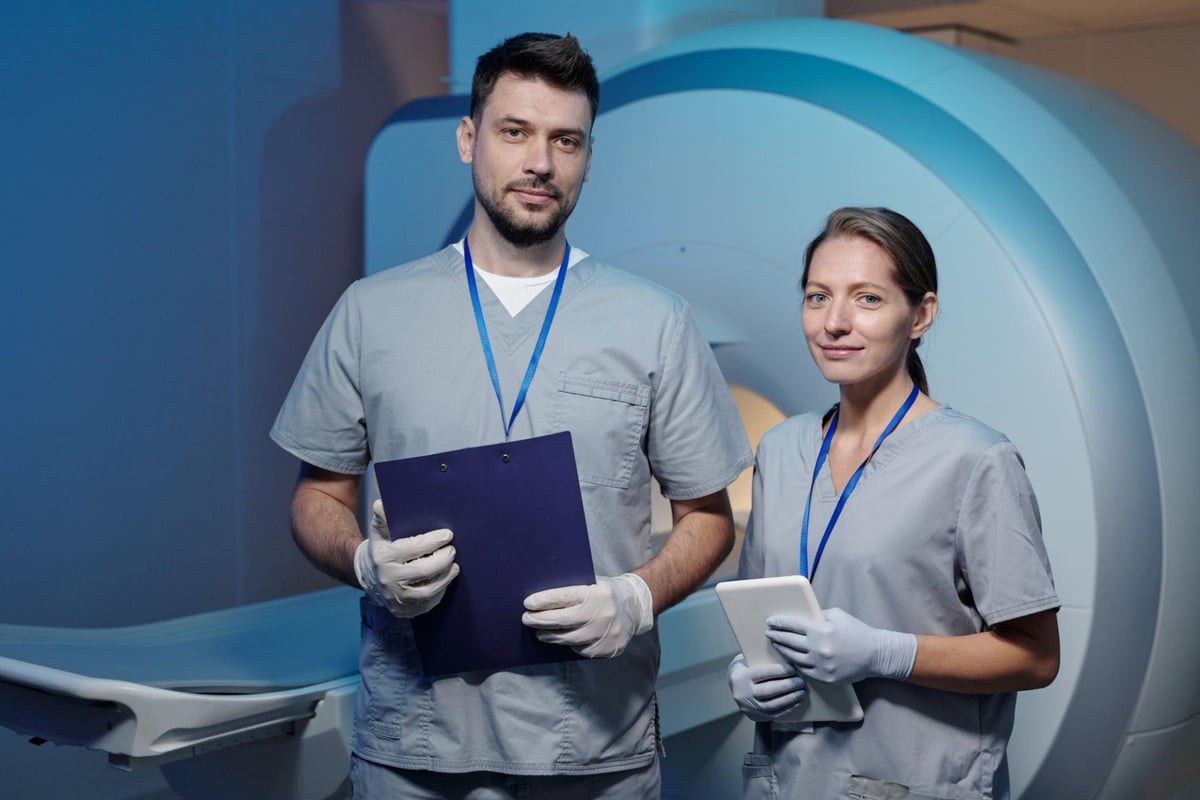Is Radiology Technician a Good Job? Pros and Cons (2025)

Choosing a career path can feel overwhelming with so many options available. Among these, becoming a radiology technician has gained significant traction in recent years. But is it truly a good career choice? Like any profession, it has its pros and cons. In this blog post, we will explore the various aspects of being a radiology technician and help you determine if it is the right career choice for you.
Key Points
- Radiology technician programs can vary greatly in cost. Certificate programs can range from $5,000-$25,000, associate's degrees from $6,000-$40,000, and bachelor's degrees from $30,000-$48,000.
- Radiology certificate programs can be completed in a few months up to two years. Associate's degree programs in diagnostic medical radiology generally span two to four years. Meanwhile, a bachelor's degree in radiology typically requires at least four years to complete.
- Radiology technician requirements are typically a high school diploma or equivalent, background and drug checks, vaccination requirements, completing an accredited radiology program, and passing a certification exam.
- The average radiology technician salary is $73,410 per year.
Frequently Asked Questions
Are Radtech and Xray Tech the same?
In simple terms, X-ray technologists primarily handle X-ray procedures for patients. On the other hand, Radiologic Technologists have a broader role. They can do not only X-rays, but also other types of imaging procedures like CT scans, CAT scans, MRIs, Ultrasounds, and more.
How stressful is being a radiology tech?
No matter where you work as a radiology technician, there will be moments when you'll need to soothe patients facing tough situations. You might also have to handle busy x-ray appointments and demanding days. Even though any medical job can have its stressful times, you'll also discover that your work brings a lot of satisfaction.
What is the highest-paying job in radiography?
Based on data from various credible sources, the highest paying role in the radiography field is a Nuclear Medicine Technologist. In simple terms, a Nuclear Medicine Technologist is a professional who uses radioactive drugs to capture images of the body's internal structures and processes. These images aid doctors in diagnosing and treating a range of medical conditions. In terms of income, a Nuclear Medicine Technologist can expect to earn between $54,000 and $124,000 per year.
Where do radiology techs make the most money?
According to the BLS, California is the top paying state for radiology technicians as of May 2023. On average, they make around $103,150 per year, or about $49.59 per hour.
Final Thoughts
Becoming a radiology technician is like taking an X-ray of your future: it begins with a vision, but you dont stop thereyou transform that vision into reality. If you're passionate about healthcare and technology, this career offers job stability, competitive salaries, and opportunities for growth. However, its important to understand the potential risks, including radiation exposure, and the physical and emotional demands of the role. To kickstart your journey, research accredited radiology technician schools and programs. The right training will enhance your job prospects and help you secure a high radiology technician salary. Start with Dreambound today and turn your aspirations into achievements!
If you're exploring options in this field in various locations, Dreambound's extensive guides are a great resource. We've got detailed insights for different states. Check out some additional guides below:
Contemplating a transition in your career or exploring various professional paths? Dreambound has written many guides to help you in making informed decisions. Here are a few:

Sunshine is a member of the School Growth team at Dreambound, where she assists students and schools with their billing and onboarding needs. She is a licensed mechanical engineer. Outside of work, she enjoys road trips with her family, discovering cozy cafes, and exploring her love for art.



